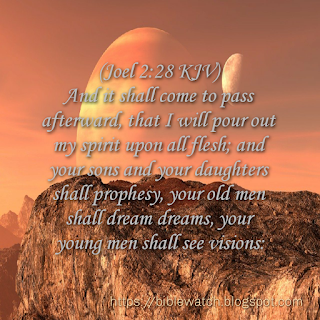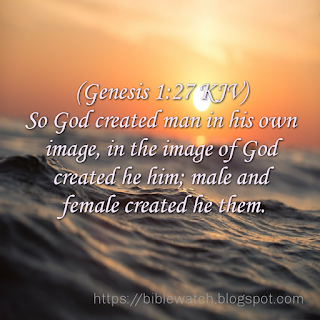WHY IS JESUS NAMED JESUS AND NOT EMMANUEL AS PROPHESIED BY ISAIAH?
It was prophesied in Isaiah 7:14 that a virgin will give birth to a child and the child will be named Immanuel, meaning "God with us".
(Isaiah 7:14 KJV) Therefore the Lord himself shall give you a sign; Behold, a virgin shall conceive, and bear a son, and shall call his name Immanuel.
Matthew in narrating the birth of Jesus stated that the prophesy in Isaiah 7:14 was fulfilled by the birth of Jesus.
(Matthew 1:21-23 KJV) And she shall bring forth a son, and thou shalt call his name JESUS: for he shall save his people from their sins. Now all this was done, that it might be fulfilled which was spoken of the Lord by the prophet, saying, Behold, a virgin shall be with child, and shall bring forth a son, and they shall call his name Emmanuel, which being interpreted is, God with us.
However, it seems the child was not named Immanuel but Jesus. Is this a contradiction? Why is Jesus named Jesus and not Immanuel as prophesied in Isaiah 7:14?
Some non Christians and Critics have stated that the prophesy in Isaiah 7:14 was not in connection with the birth of Jesus and that Matthew erred in relating it to His birth. They argued that there was no "miraculous" or "virgin birth". That the word "virgin" used in the quotation from Isaiah 7:14 as recorded in Matthew is a mistake and a misinterpretation of the Hebrew word "almah", which does not mean "virgin"; but simply "a young woman" or a woman of marriageable age". That a sign of a miraculous virgin birth that supposedly took place over 734 years later would be irrelevant to Ahaz, who required a sign prior to an imminent military invasion. That if Christians want to continue to believe that the word almah means a virgin and simultaneously claim a “double application of the prophesy” they would have to believe that a virgin birth also took place in the time of Ahaz.
Firstly, for a better understanding of what Isaiah meant by "that the son shall be called Immanuel", let us look at what the prophet wrote two chapters later in Isaiah 9:6. In prophesying about the Messiah, Isaiah wrote:
(Isaiah 9:6 KJV) For unto us a child is born, unto us a son is given: and the government shall be upon his shoulder: and his name shall be called Wonderful, Counsellor, The mighty God, The everlasting Father, The Prince of Peace.
Isaiah did not mean that the Messiah would literally be given the name “Wonderful,” or “Counselor,” or “Everlasting Father” or "Prince of Peace". Each of these names rather reveals the nature, work and power of the Messiah. Like the name Immanuel, Jesus was not called these names during His early life. He was simply known as Jesus.
Secondly, it is worthy of note that in the bible days, names are more descriptive and that they often refer to the title, character, purpose, dreams and hopes of the one being named. For instance, Adam stated that Eve shall be called woman, because she was taken out of man”.
(Genesis 2:23 KJV) And Adam said, This is now bone of my bones, and flesh of my flesh: she shall be called Woman, because she was taken out of Man.
Although Adam said, “she shall be called woman,” Genesis 3:20 later recorded that Adam called his wife’s name Eve (meaning "to breathe" or "to live").
(Genesis 3:20 KJV) And Adam called his wife’s name Eve; because she was the mother of all living.
In other words, by nature she shall be called woman while by name she is Eve.
Similarly, notice how Angel Gabriel distinguished Jesus’ given name and the title by which He would be known in Like 1:30.
(Luke 1:31-32 KJV) And, behold, thou shalt conceive in thy womb, and bring forth a son, and shalt call his name JESUS. He shall be great, and shall be called the Son of the Highest: and the Lord God shall give unto him the throne of his father David:
The name Immanuel served as a title and description of Jesus' role as the Messiah as God with us. More so, the fact that Matthew wrote of the Messiah’s “name” being “Immanuel” in Matthew 1:23, but “Jesus” in verses 21 and 25, clearly shows that Matthew understood that the name "Jesus" was a literal name while "Immanuel", similar to Jesus’ title “Christ,” characterized His essence.
Meanwhile, the argument that the Hebrew word "almah" could mean a young married woman is not supported in any scripture. Almah means unmarried young woman. In none of it's original application was it used in connection with a married woman. Some contend that it simply means any young woman but this is inaccurate as it only means one who is a pure and undefined virgin; one who has never known man.
On the other argument that the prophesy is not in connection with the birth of Jesus and that there was no virgin birth, it is good to understand that the prophecy in Isaiah 7:14-16 was a prophecy of two distinct coming events, one was immediate which gives immediate assurance and protection to the house of David while the other one was for a distant future which gives assurance of future and eternal protection to the house of David.
(Isaiah 7:14 KJV) Therefore the Lord himself shall give you a sign; Behold, a virgin shall conceive, and bear a son, and shall call his name Immanuel. Vs 15 Butter and honey shall he eat, that he may know to refuse the evil, and choose the good. Vs 16 For before the child shall know to refuse the evil, and choose the good, the land that thou abhorrest shall be forsaken of both her kings.
The first part of the prophecy which is Isaiah 7:14 is a direct prediction of the virgin birth and the coming Messiah and has nothing to do with immediate or double fulfillment as it was exclusively to one virgin birth while the second part which is Isaiah 7:15-16 refers to Isaiah’s son who was a baby at that time and whom the Lord said he should take with him to meet Ahaz to serve as the immediate sign (read verse Isaiah 7:3). It is worthy of note that Isaiah declared that his sons are for signs and wonders in Israel (reference Isaiah 8:8). His first son was a sign in connection with the prophecy of Isaiah 7:15-16 while his second son was a sign in connection with Isaiah 8:14.
Notice that there is no debate that the prophecy in Isaiah 9:6-7 was in connection with the coming Messiah. If the critics admit that Isaiah 9:6-7 refers to the Messiah without a doubt and without the double fulfillment of the prophecy of two virgin-births, then the same is true of Isaiah 7:14.
If you like our blog, kindly share your views, suggestions, and comments. Like our Facebook page @BibleWatch, follow us on Twitter @bible_watch and click the Subscribe button above.









Hnmmm Great......His indeed the Son of God.....call Him Emmanuel, Jesus Almghty God is still God. At the mention of his name JESUS every knee must bow
ReplyDeleteThis is a good explanation for those who are in doubt about the birth of Jesus but I wonder what such people are thinking to come up with such thought at the first place.
ReplyDeleteMay God help us from end time scholars...